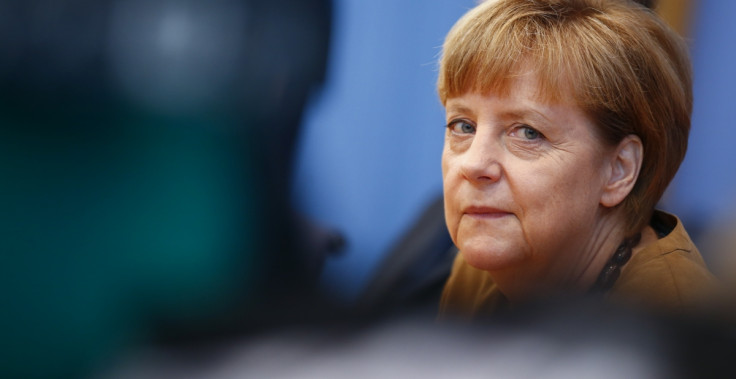Germany Likely to Avoid Recession as Trade Picks Up in September

Berlin officials can breathe a slight sigh of relief, as new data shows the German economy may avoid a recession that looked nailed on a month ago.
Trade performed best – unsurprisingly, perhaps, given its disastrous August, when exports fell by 5.8%. In September, they rose by 5.5%, with imports rising 5.4% after two months of successive decline.
Industrial output rebounded by 1.4% having fallen by 3.1% in August, but this didn't quite match analysts' predictions of a 2% rise. Manufacturing rose by 1.7%, but construction continues to underperform, falling by 1.2% in September.
Despite this, after a week in which the eurozone was pummelled by a series of damning reports and statistics, most are looking upon the German data positively.
Andreas Rees, the chief German economist of UniCredit, said: "There's no reason to be disappointed here. If you take exports and industrial production together, we will see a small amount of GDP growth in the third quarter.
"But it may only be enough for 0.1% of growth. This is a temporary slowdown that will persist into the fourth quarter. But we won't see a deep recession."
Others are less sanguine. Jonathan Loynes, the Chief European Economist at Capital Economics, wrote in a note: "September's disappointing rebound in German industrial production increased the risks that both the German and Eurozone economies contracted in quarter three, and added to the pressure on the ECB and German government to provide more policy support."
The travails of those around Germany may continue to have a drag on its economy. Earlier in the year, a German industrial group predicted that the country's exports will decline by between 20% and 25% because of mutual economic sanctions by the EU and Russia.
The Committee on Eastern European Economic Relations (OST), a business lobby group, warned that the economy could be set to lose 50,000 jobs by the end of the year, should the sanctions remain in place.
Germany is Europe's largest exporter to Russia and prior to the sanctions regime, provided the country with much of the high tech equipment used in its energy and extractive industries. There has been an embargo placed on the export of these goods by the EU.
Meanwhile, demand in the Eurozone remains weak, with ECB-watchers on standby to see how the bank's president Mario Draghi's announcement of €1tn of fresh stimulus will play out.
Speaking at a press conference in Frankfurt on 6 November, he said: "Should it become necessary to further address risks of too prolonged a period of low inflation, the governing council is unanimous in its commitment to using additional unconventional instruments within its mandate. The governing council has tasked ECB staff and the relevant euro system committees with ensuring the timely preparation of further measures to be implemented, if needed."
Weak demand is compounding deflationary fears. Inflation is still hovering stubbornly on the 0.4% mark, well under the ECB's target of 2%. The OECD yesterday warned that the ECB must act decisively if is to help turn the region's fortunes around.
OECD Chief Economist Catherine Mann said: "With regard to fiscal policy, the US and the euro area as a whole, and specific countries in particular, have already tightened the fiscal belt quite a bit. Fiscal stance going forward needs to balance fiscal sustainability against possible downside effects on short-term growth and confidence, factors that could put the economy into a skid.
"The characteristics of debt obligations bears close scrutiny, as does the type of fiscal spending and tax choices. Fiscal spending in the near term to support innovation, education, and infrastructure will both support near-term growth, as well as turn back the legacy of low potential output and complement the engines of trade and investment."
© Copyright IBTimes 2025. All rights reserved.






















